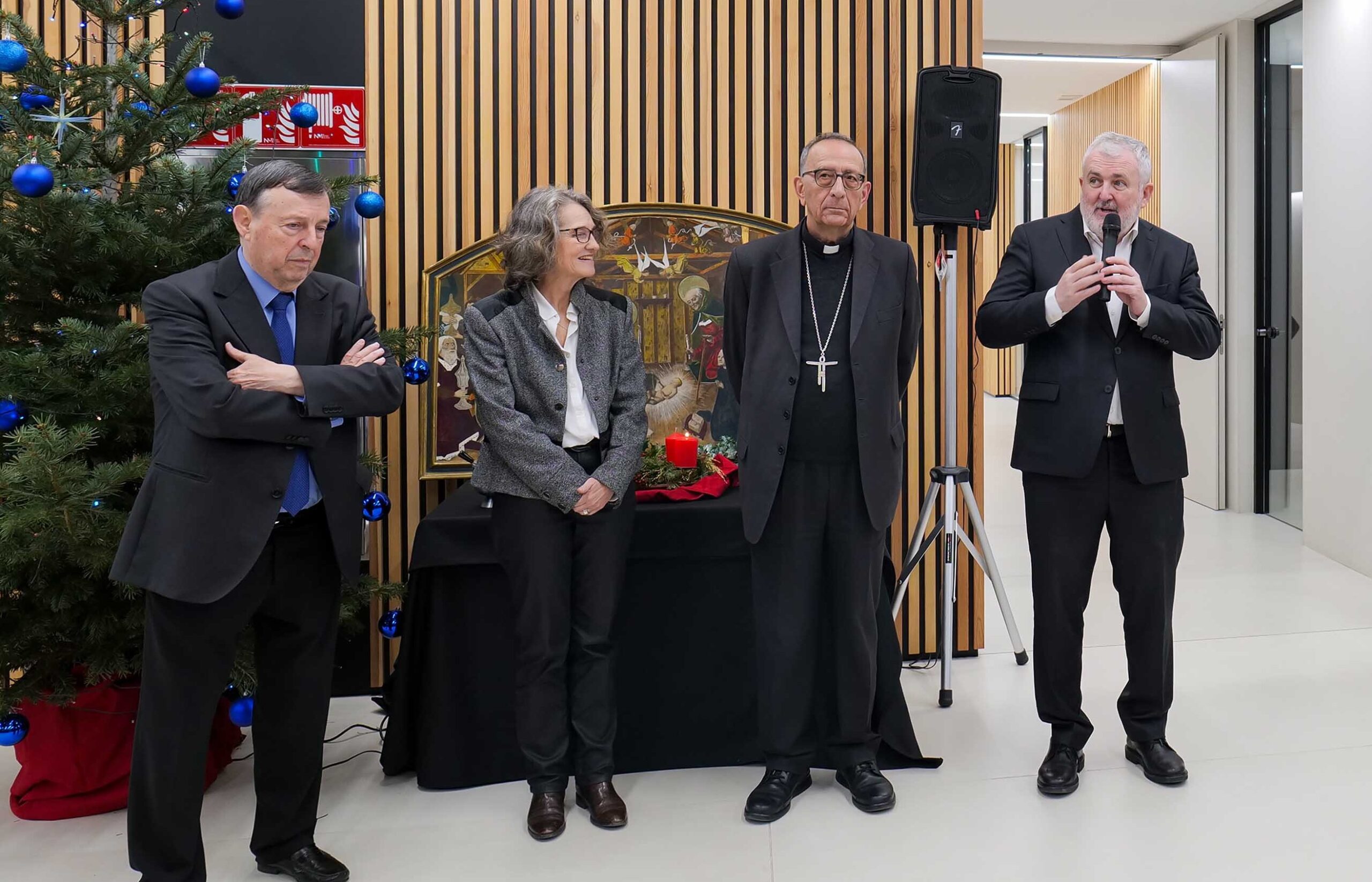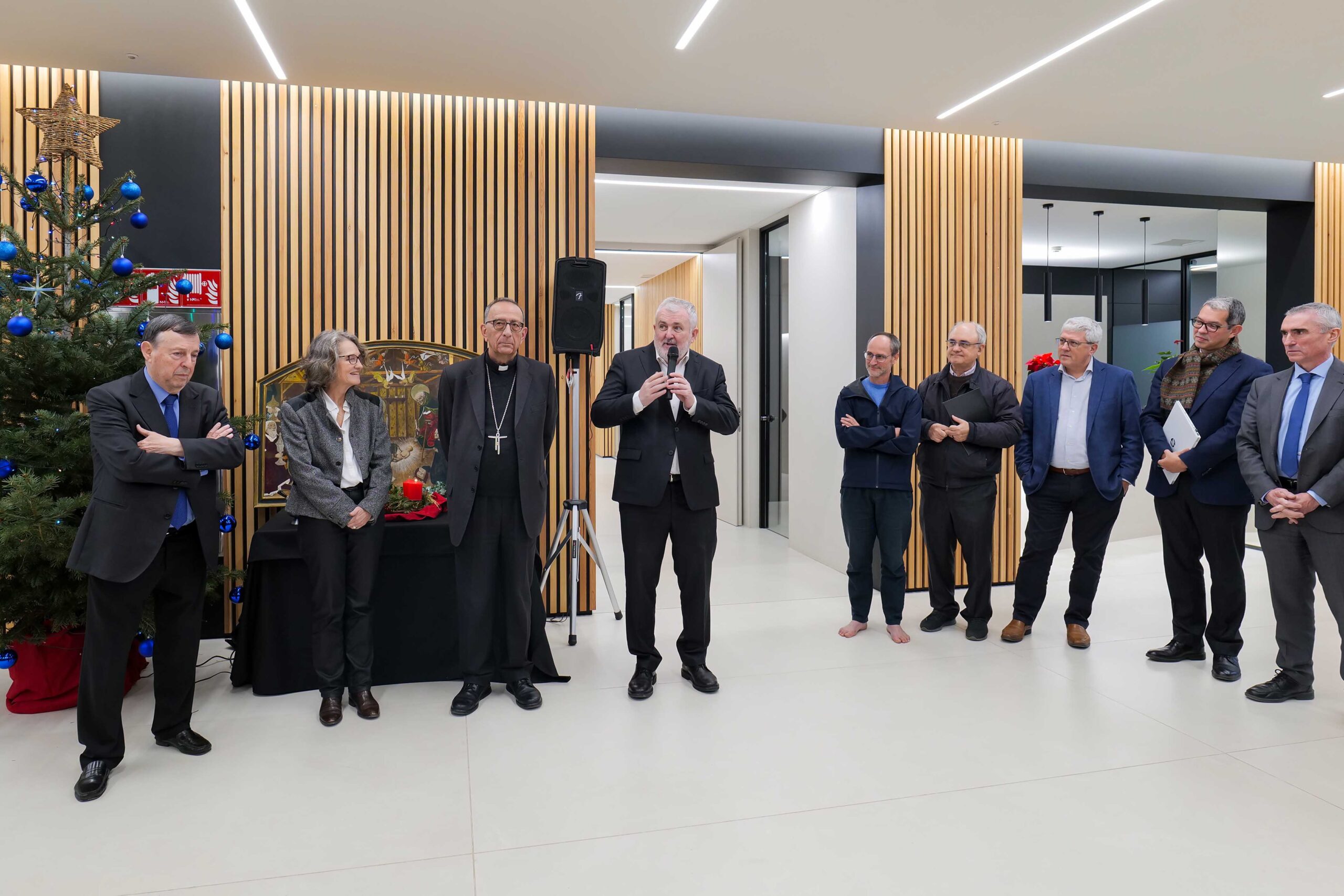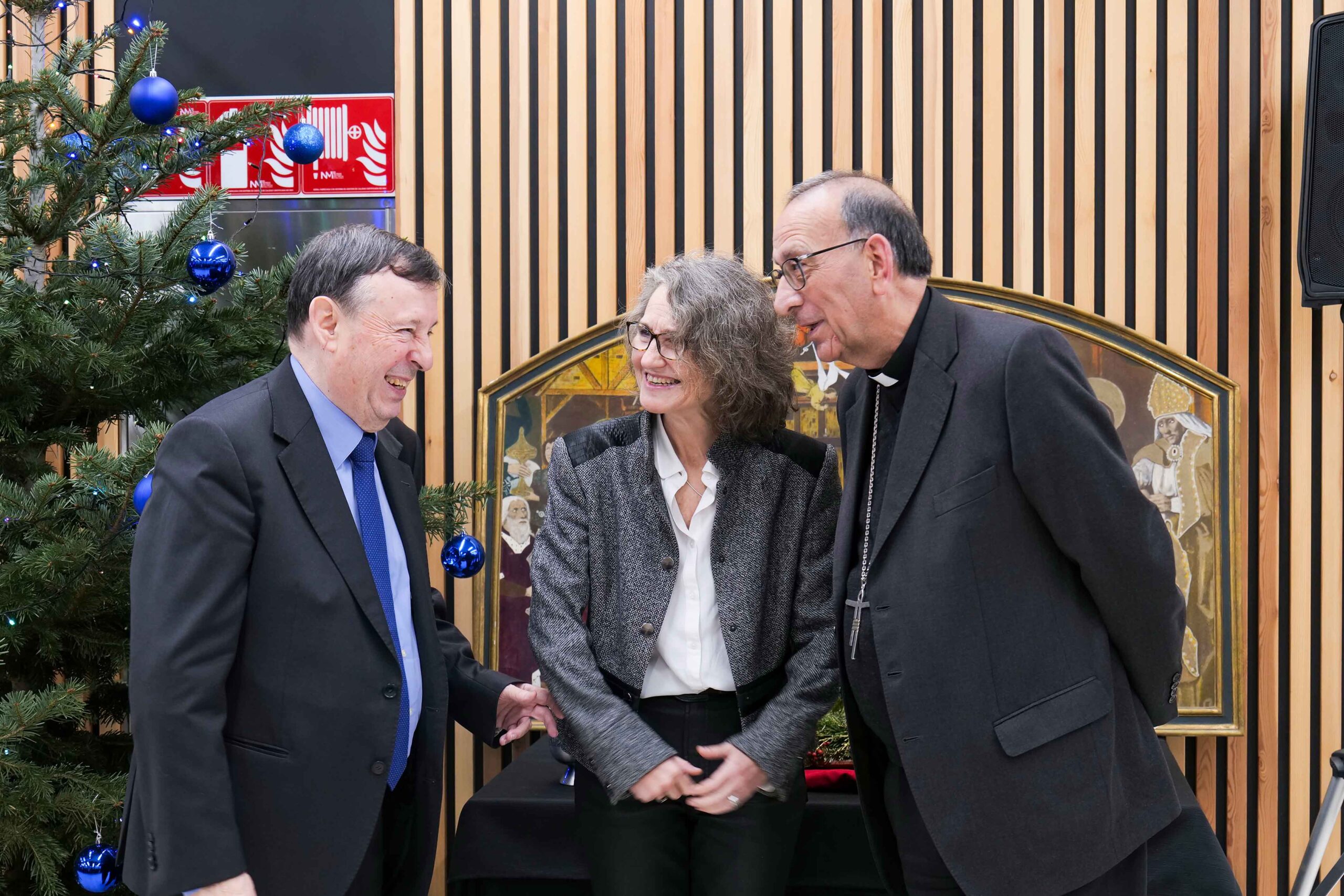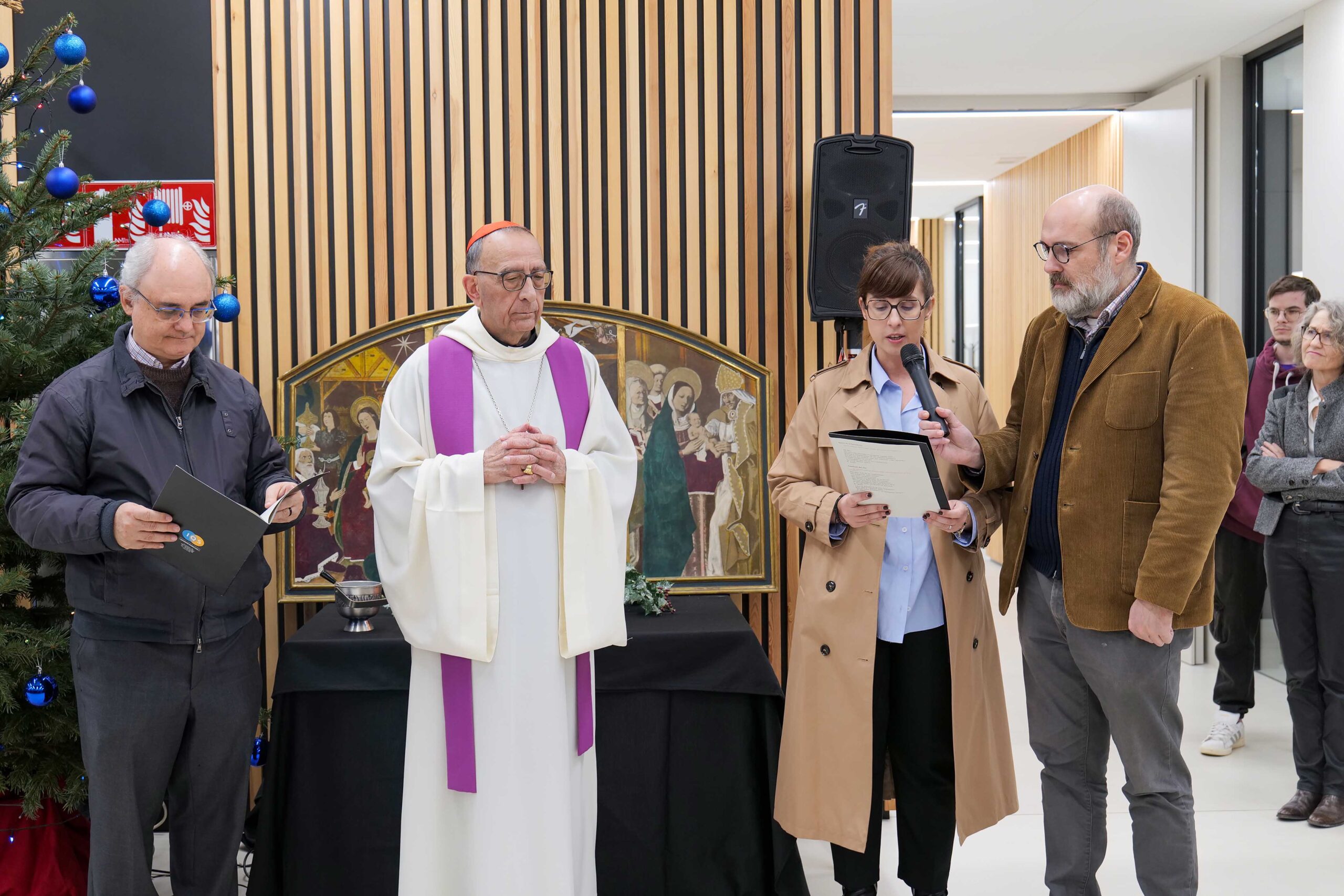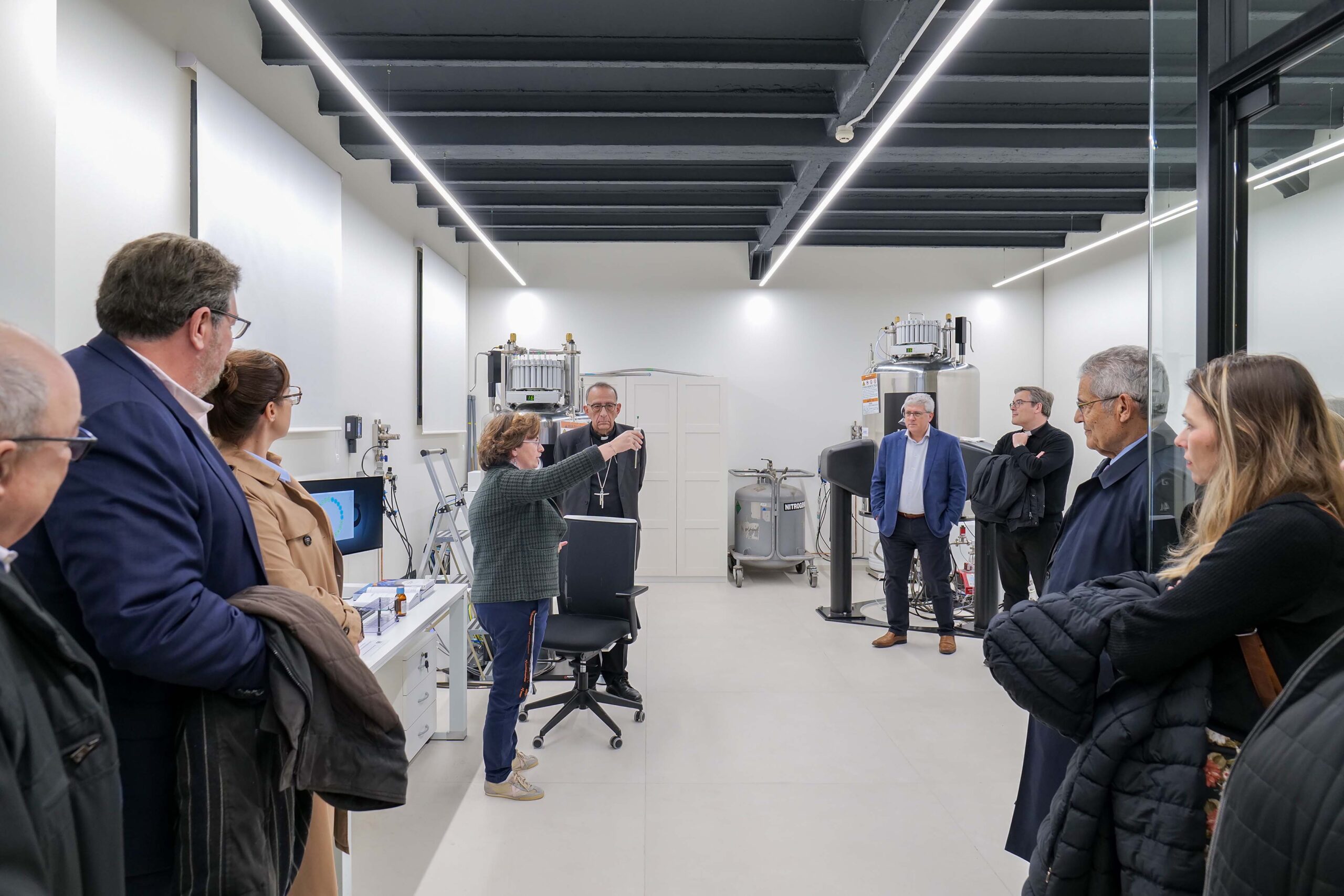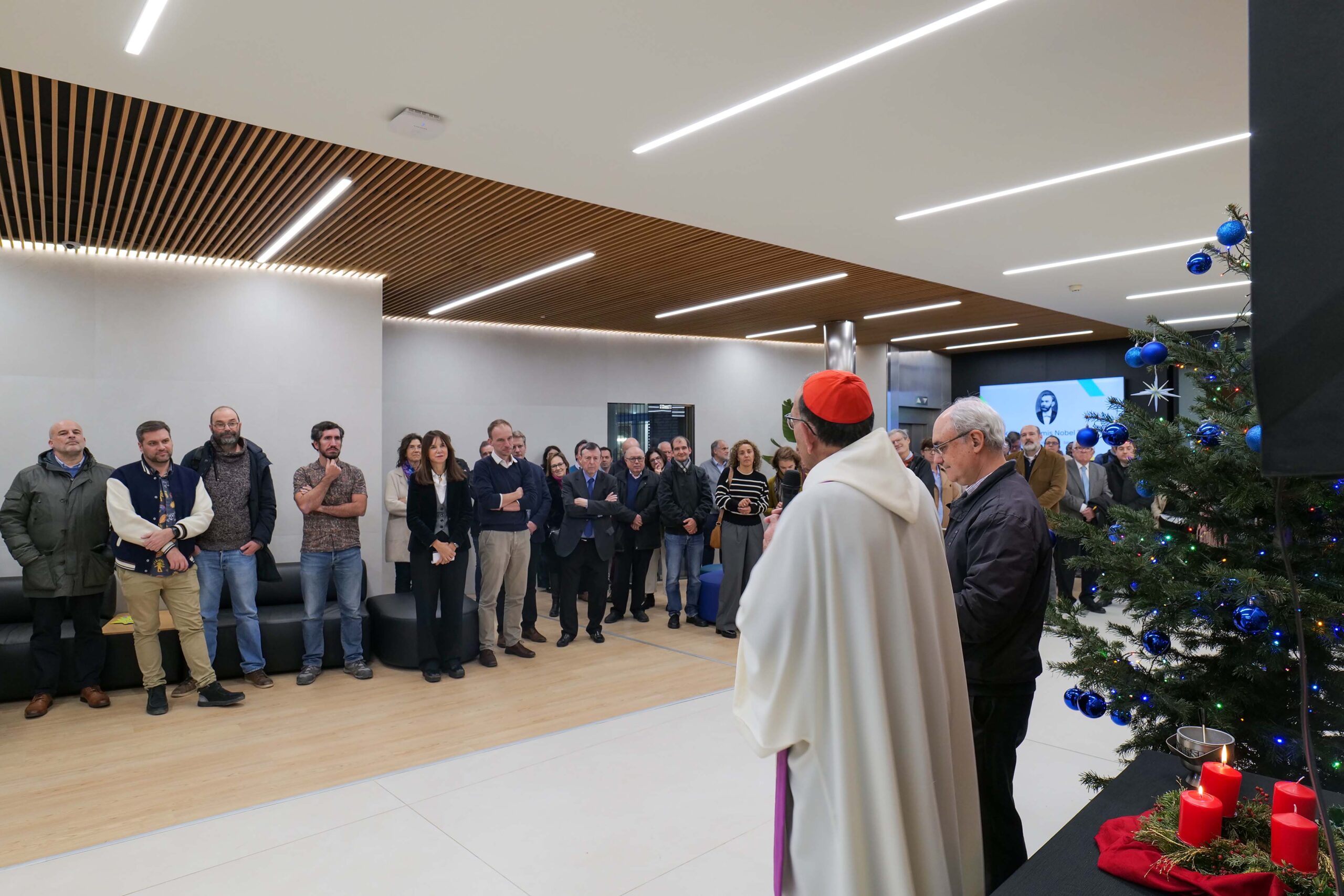IQS recently celebrated an important milestone in its growth with the inauguration of new laboratories and academic spaces that mark a significant advance in its commitment to scientific excellence, comprehensive education, and service to society. This event brought together prominent representatives from the religious, academic, and business fields, highlighting the role of IQS as a leader in the interrelationship between faith, science, and technology.
The opening ceremony began with a speech by Dr Salvador Borrós, Director of IQS, who welcomed the attendees. In his comments, he stressed that these new facilities represent “a look towards the future,” emphasizing their contribution to student learning, university research, and improved management for the school’s faculty and staff. According to Dr Borrós, these spaces are important for IQS to continue fulfilling its institutional mission, maintaining a future projection based on excellence and commitment.
Dr Ana García-Mina, a UNIJES representative, underscored the importance of these new spaces as tools to transform individuals. In her speech, she expressed her desire for these facilities to help IQS carry out its mission, stressing that “all the people who are here are agents of change.” Dr García-Mina encouraged the attendees to contribute to the construction of a better and more just society through these spaces.
Cardinal Joan Josep Omella blessed the new spaces, noting that they are designed to be at the service of science and technology, but, above all, at the service of professionals who will seek to improve people’s daily lives. “I am certain that you will do so in the distinctive style of this century-old institution, marked by the evangelical spirit embodied in the Ignatian motto: In all things, to love and to serve,” he said.
The Cardinal also took the opportunity to recall the 120-year history of IQS, highlighting how the institution has been a pioneer in integrating faith and science since its inception. “Since 1905, this school has shown that faith and science can work together, representing the joint mission of a university institution,” he added, highlighting the educational tradition of the Society of Jesus based on academic rigor, selflessness, and the comprehensive education of its students.Fr. Enric Puig SJ, president of the IQS Foundation, took the floor to highlight the importance of this event as a celebration of the collective effort that has made the creation of these new spaces possible. “Ignatius of Loyola’s faithfulness inserving and loving” was the phrase that underscored his speech, recalling the values of the Society of Jesus.
Commitment to the mission and the future
Fr. Pau Vidal SJ, representative of the Jesuits in Catalonia, closed the opening ceremony with a speech that offered a profound reflection on the role of IQS in the mission of the Society of Jesus and the Church, contextualizing the relevance of this institution in contemporary challenges. He stressed that the beginnings of IQS, marked by the interrelation between faith and science, not only traced a clear institutional path, but also reflected the spirit of the Society of Jesus: a constant commitment to meeting human needs, promoting dignified living conditions, and working for justice based on evangelical love.
Fr. Vidal, SJ, stressed that the centennial history of IQS has been characterized by its ability to adapt to the challenges of each era. He spoke of milestones such as the introduction of new academic programmes, the expansion of scientific and industrial research areas, and knowledge transfer to the business world, achievements that consolidate IQS as a leading institution of higher education. In addition, he highlighted how the institution has been able to recraft its mission to respond to current times, integrating sustainability and the care for our “common home” as essential elements of its academic and scientific work.
He emphasized that this commitment to sustainability is aligned with the fourth universal apostolic preference of the Society of Jesus: working to conserve our planet as an ethical and spiritual responsibility. In this regard, he highlighted the involvement of IQS in the Reference Research Centre in Ecology and the Environment within the UNIJES network, an initiative that seeks to develop socioeconomic models focused on justice and care for the natural environment.
State-of-the-art facilities for excellence
The heart of this renovation is the Analytical and Applied Chemistry laboratories, equipped with state-of-the-art technology that positions IQS at the forefront of research. The new acquisitions include the innovative ICP-MS with single particle module and the QTOF mass spectrometer, essential for metal analysis, chromatography, and mass spectrometry. Likewise, the JEOL Nuclear Magnetic Resonance (NMR) laboratory places IQS within the world’s leading network in this technique, allowing the university to advance in biomedical therapies and therapeutic applications.
With a total area of 400 m², the new facilities integrate specialized laboratories such as Metal Analysis, the IQS Sciex Demo Lab, and the Bioanalysis Laboratory. These modern and collaborative infrastructures reinforce studies in bioanalysis and omics sciences, key areas for the future of biomolecular research.
The inauguration of these spaces consolidates IQS as a leading centre for scientific research, technological innovation, and comprehensive education, reaffirming the school’s commitment to society and to the values that have defined its history for more than a century.










